2022 Next-Generation Fellows
The following biographies were written at the time our fellows started their program.
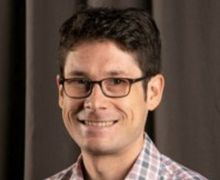
Curtis T. Asplund is an assistant professor in the Physics & Astronomy Department at San José State University. Prior to this, he was a visiting faculty member at Franklin & Marshall College, and earlier was a high school teacher for several years near Washington D.C. He completed postdocs at Columbia University and KU Leuven, and he earned his Ph.D. from UC Santa Barbara, where he studied theoretical aspects of black holes and entanglement in quantum field theory. His interests in ethics, public policy, and the role of scientists in society emerged in his original stomping grounds of Southern California and were developed further in the liberal arts climate of his alma mater, Oberlin College. His concerns about American military power are also informed by growing up on and around U.S. military bases and having close family still serving.
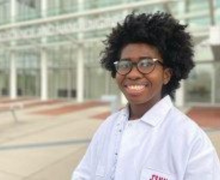
Sarah Bartley obtained her B.S. in Physics from Agnes Scott College and an M.S. in Physics from the University of Central Florida. She is a Ph.D. student in the Department of Nanoengineering at North Carolina A&T State University. She accepted an IBIEM (Integrative Bioinformatics for Investigating and Engineering Microbiomes) fellowship for the year 2020-2021 to focus on microbiome research. She hopes to incorporate computational work within Dr. Dellinger’s experimental lab.
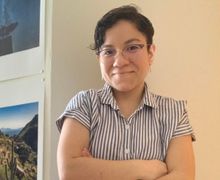
Dory Castillo-Peters graduated in 2021 with a BA in Physics and Math. Her previous research spans three different institutions, Montclair State, Rutgers-Newark, and CalTech, and was concentrated in the area of fluid dynamics. Currently, she is pursuing a Ph.D. in Mechanical Engineering at Cornell University applying machine learning concepts to computational solid mechanics. Dory is a strong proponent of science advocacy and policy. As an educator who spent 7 years teaching K-12 STEM classes, she is experienced in creating courses, writing curricula, and guest lecturing. As a DACA (deferred action for childhood arrivals) recipient, Dory has led efforts to amplify the voices of undocumented students.
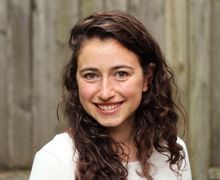
Emily Kuhn is a Ph.D. student in physics at Yale University. Her graduate research focuses on developing calibration hardware for next-generation radio telescopes. She has TA-ed several courses at the intersection of science and public policy, with a particular focus on the history and legacy of the US nuclear program, and she has enjoyed challenging young scientists to think about the broader societal implications of their own work. Emily holds a BS in physics from Duke University, and will be starting a NASA Postdoctoral Program Fellowship in the Fall.
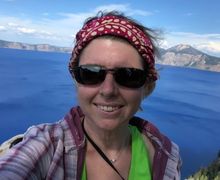
Mindy Townsend is a Ph.D. candidate at the University of Kansas doing research on galaxy evolution. Before she found astronomy, she was an attorney studying international human rights law. She has at various times been an activist and a writer, and is now looking forward to using her experiences as a Next-Generation Fellow. In her spare time, Mindy enjoys hiking, plowing through her “for fun” reading list, and doing astronomy outreach.
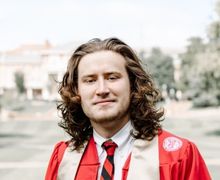
Owen Webster is a second-year Ph.D. student in the North Carolina State University Department of Nuclear Engineering and is also enrolled in the graduate certificate program in Nuclear Nonproliferation Science and Policy. He graduated from undergraduate programs at the same institution with a B.S. in Mechanical Engineering, a B.A. in Foreign Languages and Literatures (Asian Language Concentration), and a B.S. in Economics. His studies have also included a year at Tsinghua University learning Mandarin as a Boren Scholar, and he was selected to participate in the 2021 Hiroshima International Campaign to Abolish Nuclear Weapons (ICAN) Academy on Nuclear Weapons and Global Security. Owen’s ongoing research focuses on novel radiation detector materials and devices, currently edge-defined film-fed (EFG) gallium oxide. In his spare time he enjoys beekeeping, raising Coturnix quail, and spending time with his cats.
